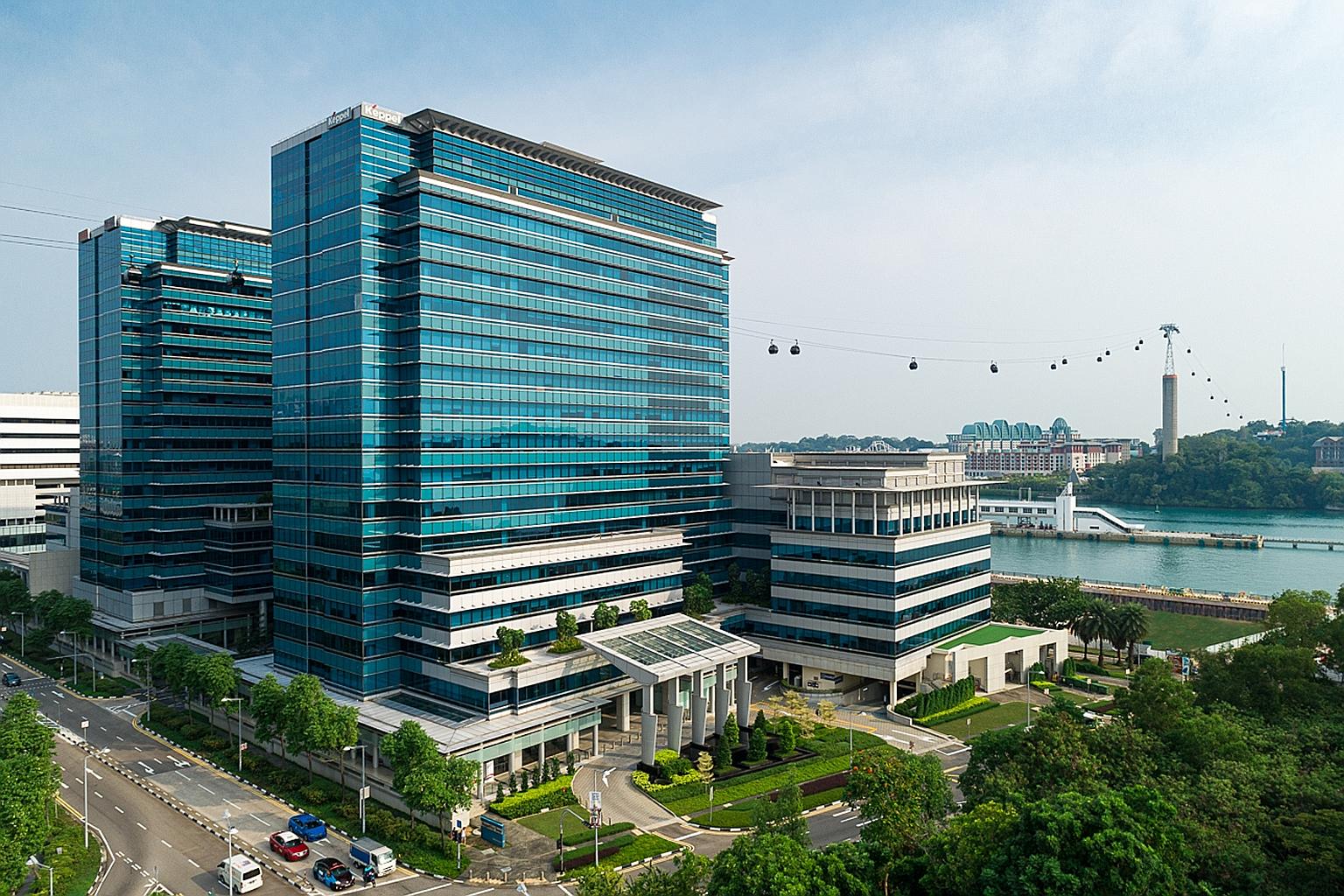Keppel Bay Tower to be fully powered by renewable energy
Sign up now: Get ST's newsletters delivered to your inbox

From Jan 1 next year, Keppel Bay Tower (left) will be Singapore's first commercial development to use renewable energy to power all its operations, including the offices of tenants in the building. This is part of Keppel's continued efforts to transform the building into Singapore's first "super low energy high-rise existing commercial building".
PHOTO: KEPPEL CORPORATION LIMITED
Come Jan 1, Keppel Bay Tower in Harbourfront Avenue will become the first commercial development in Singapore to use renewable energy to power all its operations, including the offices of tenants in the building.
Its property arm Keppel Land, the owner and operator of Keppel Bay Tower, will be installing an assembly of solar photovoltaic (PV) panels spanning about 400 sq m on the roof of the 18-storey building as well as its six-storey podium block.
In addition, Keppel Land, through its electricity retailer, Keppel Electric, will be purchasing renewable energy certificates (RECs) for green energy generated from PV panels installed in Keppel Offshore & Marine's yards in Singapore. The REC is a tradable document used to offset the use of non-clean energy.
When completed in the first quarter of next year, Keppel Bay Tower's PV system is expected to generate an energy yield of about 100,000 kilowatt hour (kwh) per annum, Keppel Corp said on Sunday.
Together with the purchase of RECs, the initiatives will result in a reduction of more than 2,400 tonnes of carbon emissions per year - an amount which would otherwise require about 12,000 trees to absorb over about 50 years, it added.
Keppel said the initiatives are part of its continued efforts to transform Keppel Bay Tower into Singapore's first "super low energy high-rise existing commercial building".
Keppel Bay Tower was awarded a grant of about $1.28 million by the Building and Construction Authority (BCA) last year to trial new and emerging technologies that would cut the building's energy consumption significantly and improve its energy efficiency by 20 per cent compared with fellow Green Mark Platinum buildings by June next year.
BCA chief executive Hugh Lim said, "We commend Keppel Land for its efforts in playing a part to push the boundaries for environmental sustainability in the built environment.
"The efforts for Keppel Bay Tower demonstrate a good example of how even existing large commercial buildings can tap innovation to achieve super low energy status, by combining smart air-conditioning and lighting with integrated controls.
"The reduced energy demand can be met by renewables harnessed onsite and offsite through Keppel Land's holistic approach.
"We hope more building owners and industry players will be inspired to set new benchmarks for how we build and operate buildings - new and existing - contributing to the urgent task of mitigating climate change through super low energy buildings."
Keppel added that it is on track to meet its goal of reducing the annual energy consumption of Keppel Bay Tower to 115 kwh/sq m from its initial consumption of about 145 kwh/sq m by June next year.
Keppel Bay Tower is also working with tenants to adopt "green leases" - where guidelines to cut energy or water use could be incorporated in the lease terms, for example - and install energy-efficient LED lamps in their offices at no additional capital investments to the tenants, and is helping them attain Green Mark certification.
Keppel Land aims to find new solutions to further reduce the building's energy consumption to below 100 kwh/sq m a year, which would result in Keppel Bay Tower being 50 per cent more energy efficient compared with typical office buildings in Singapore, said Keppel.
Keppel Land has 83 BCA Green Mark Awards, of which 16 are platinum. The developers' Green Mark-awarded projects, when completed, are expected to reduce energy consumption by more than 200 million kwh per year - enough to power more than 38,000 homes in Singapore for one year, said Keppel.
This translates to cost savings of about $42 million annually, the company added. This is in addition to total annual water savings of about two million cubic metres and yearly carbon emission reduction of almost 90,000 tonnes.


